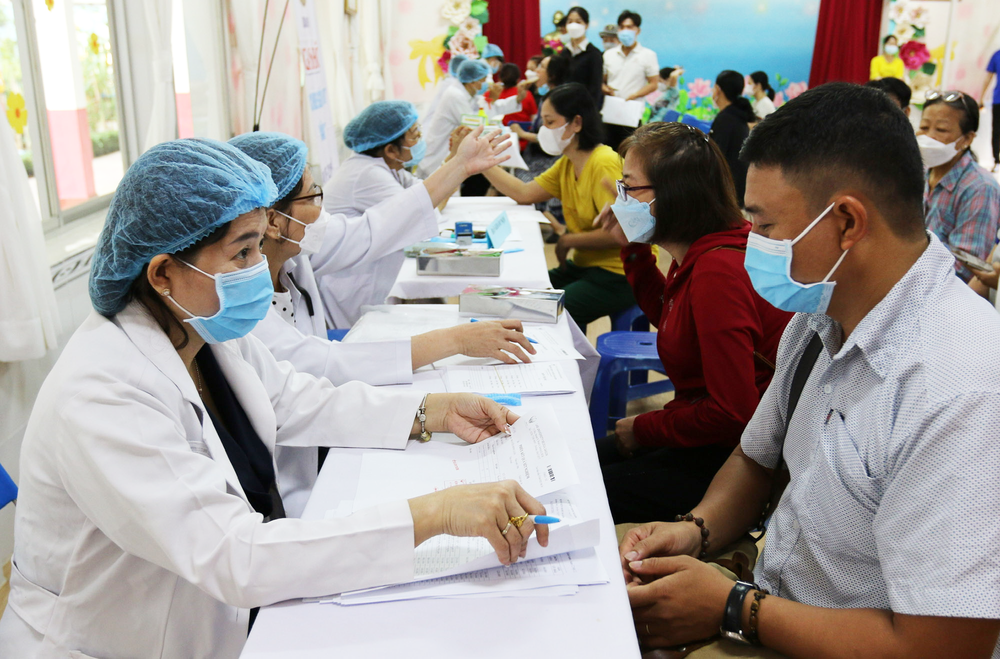
The director of the health sector said this at the recently held online meeting with districts and Thu Duc City specializing in grassroots health to update, unify, and promote the implementation of solutions to strengthen grassroots healthcare in the city.
Specifically, the sector will focus on major issues such as the selection process of community health collaborators. The city aims to select more than 16,000 community health collaborators for patients’ outcomes. In addition, the city will implement a health examination and non-communicable disease screening program for elderly metropolitan inhabitants in 2024.
Furthermore, the southern largest city will develop and deploy a set of criteria to evaluate the level of completion of health care tasks by districts in 2024 and adjust the pilot practice program at hospitals associated with medical stations for localities for newly graduated doctors in accordance with the Law on Medical Examination and Treatment effective from January 2024.
According to Associate Professor Tang Chi Thuong, the Department of Health applauded Binh Tan and Binh Thanh districts for proactively recruiting community health collaborators, specifically Binh Tan district has recruited 256 people out of a total of 1,499 collaborators as planned and Binh Thanh district recruited 138 collaborators out of a total of 1,000 collaborators as planned.
The Department of Health requires people's committees in the remaining districts to urgently implement the process of selecting community health collaborators according to the instructions of the health sector. Under the health sector plan, each 150-200 households in the inner city area and 100-150 households in suburban areas have one collaborator.
Additionally, according to the plan of the Department of Health, training courses for community health collaborators will be implemented from March 2024, the Ho Chi Minh City Center for Disease Control (HCDC) was assigned to be responsible for organizing the training courses for collaborators.
At the same time, it is recommended that the People's Committee of wards and communes each year evaluate the performance results of each community health collaborator and supplement more people in the special force, said Associate Professor Tang Chi Thuong.
For the health examination and non-communicable disease screening program for the elderly living in the city in 2024, the Department of Health requests people's committees of districts and Thu Duc City to develop plans to deploy medical examinations according to the plan issued by the Ho Chi Minh City People's Committee to soon detect non-communicable diseases in the elderly for consultation, early treatment and management.
People's committees in districts should estimate costs for health examination activities for senior citizens and send them to the Sub-department of Population and Family Planning to submit to the Department of Health. Based on districts’ estimate, the Department of Health and the Department of Finance will work with the Ho Chi Minh City People's Committee on the funding arrangement for the task implementation in 2024.
The Department of Health noticed that localities need to comply with the instructions that have been implemented in 2023, ensuring that all elderly people in the area with non-communicable diseases can receive proper care and treatment.
Moreover, local administrations should perform digital conversion of people's health examination data and only receive payment after full digital conversion of health examination data according to the present regulations.
























